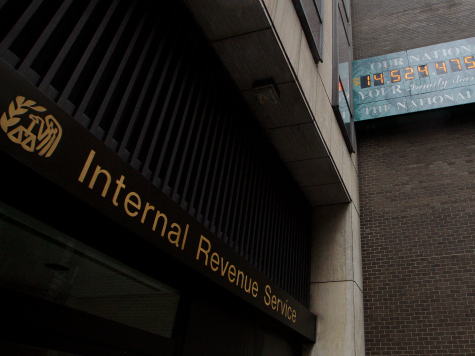
House Oversight and Government Reform Committee Chairman Darrell Issa (R-CA) and Regulatory Affairs Subcommittee Chairman Jim Jordan (R-OH) requested Tuesday that Internal Revenue Service Commissioner John Koskinen withdraw a proposed regulation that they say stifles political speech by nonprofit organizations.
The IRS proposal further regulates what would be considered a social welfare organization. Given the agency’s recent history of targeting conservative non-profit groups attempting to gain non-profit status, Chairman Issa and Chairman Jordan are suspicious of the proposed rule.
According to a statement from the Oversight Committee, an investigation into the IRS’s targeting of conservative taxexempt applicants showed there are “serious flaws and concerns about the process and substance of the proposed rule.”
In a letter to Koskinen, Issa and Jordan argue that the proposed IRS rule “codifies the Obama Administration’s earlier attempts to stifle political speech” as well as “improperly applies Federal Election Commission standards to tax-exempt organizations.” Additionally, the two GOP congressmen noted that the IRS’s efforts to create new regulations on political speech for non-profit groups, which was spearheaded by Lois Lerner and the IRS chief counsel’s office, started before a TIGTA audit made the case such regulations were necessary.
“The proposed regulation is intended to clarify the tax-exemption determinations process and resolve problems identified in a Treasury Inspector General for Tax Administration (TIGTA) audit report. It does not,” wrote Chairman Issa and Chairman Jordan. “As written, the Administration’s proposed rule will stifle the speech of social welfare organizations and will codify and systemize targeting of organizations whose views are at odds with those of the Administration. In addition to these substantive concerns, we also have serious concerns about the process by which the Administration promulgated this rule.”
Issa and Jordan explain, “The proposed rule creates a profound disincentive to engage in any constitutionally protected political speech because the mere mention of a candidate may affect the tax status of a social welfare group. Under the rule, ‘[a]ny public communication… within 30 days of a primary election or 60 days of a general election’ that refers to one or more clearly identified candidates in that election ‘is political activity.'”
This could have any number of negative, unintended effects, explain the Congressmen:
Organizations might reference the election in a newsletter, write a blog post about the election linking to the candidates’ web pages, or simply mention the activities of the incumbent elected official in a non-election related communicate, but the new rule will flatly declare that these activities do not promote social welfare, thus jeopardizing the tax status of the group engaged in political speech.

COMMENTS
Please let us know if you're having issues with commenting.